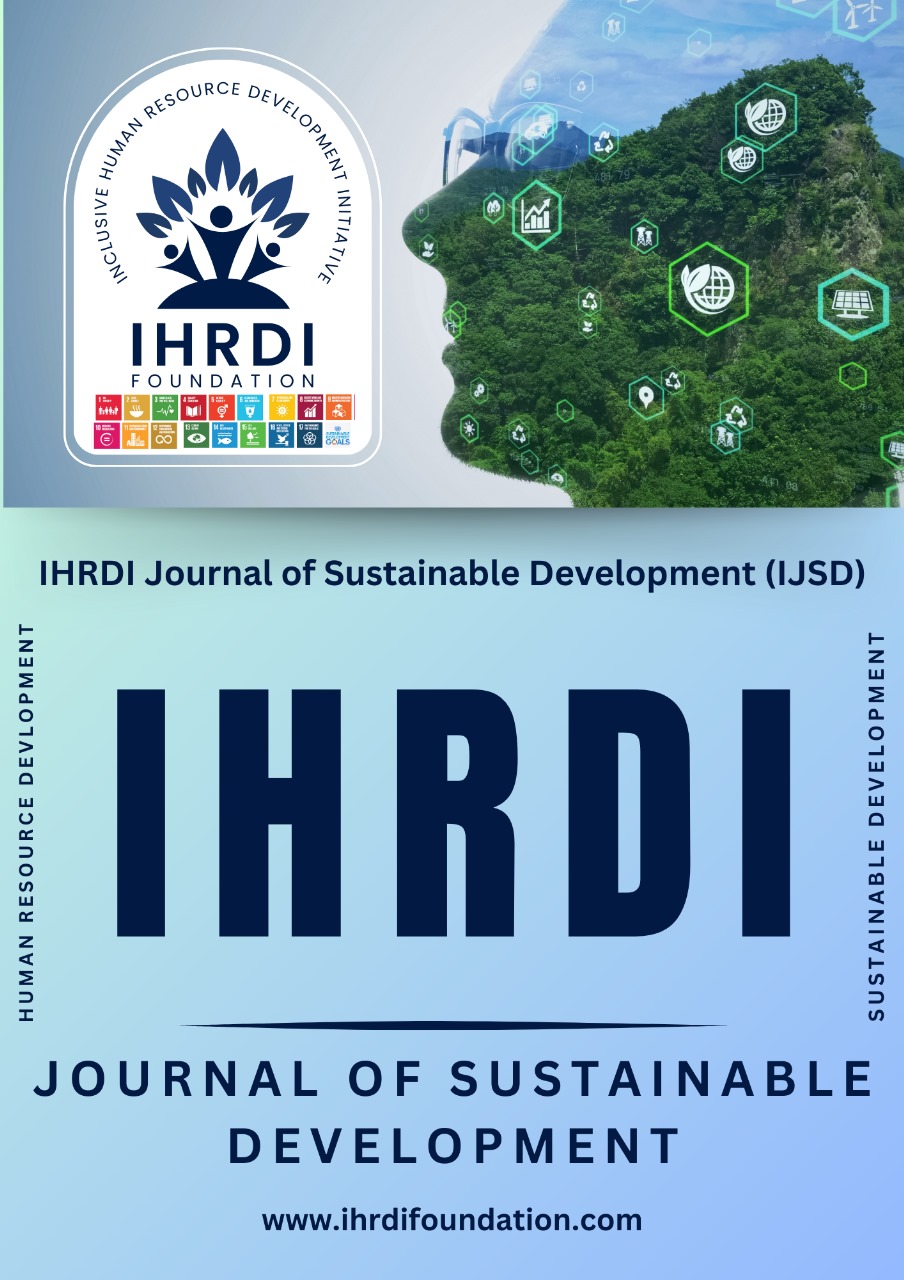The Role of Indigenous Knowledge in Sustainable Health Practices
Abstract
Indigenous knowledge, rooted in the profound wisdom of diverse cultures around the world, holds immense potential for shaping sustainable health practices. This conference paper explores the multifaceted contributions of indigenous knowledge systems to the field of healthcare, highlighting their intrinsic connections to culture, environment, and spirituality. Indigenous communities have developed holistic approaches to health and wellbeing that extend beyond conventional medical paradigms. These approaches integrate age-old practices, passed down through generations, reflecting an intricate understanding of the interconnectedness between individuals, communities, and the environment. By exploring traditional healing methods, ethno medicine, and community-based healthcare systems, this paper seeks to unveil the rich tapestry of indigenous knowledge and its relevance in contemporary health promotion. The integration of indigenous knowledge into mainstream healthcare systems presents an opportunity to enhance the sustainability and effectiveness of health practices. Case studies from various regions will be examined, showcasing successful examples where the incorporation of indigenous wisdom has not only preserved cultural heritage but has also led to improved health outcomes. The paper will emphasize the importance of respectful collaboration, acknowledging the expertise of indigenous communities and fostering partnerships that empower rather than marginalize. Furthermore, this paper will discuss the potential impact of indigenous knowledge on preventive care, wellness promotion, and community resilience. It will explore the intricate relationships between cultural practices, environmental sustainability, and overall health, providing insights into how indigenous perspectives can inform global health agendas.
This paper advocates for a paradigm shift in healthcare towards a more inclusive, culturally sensitive, and sustainable approach. By recognizing and integrating indigenous knowledge, we have the opportunity to cultivate a healthcare system that not only respects the diversity of cultures but also harnesses the collective wisdom of humanity for the betterment of global health.
References
King, M., & Smith, A. (2000). Indigenous health part 2: the underlying causes of the health gap. The Lancet, 356(9233), 1753-1757.
Watson, A. (2009). The significance of Indigenous knowledge in Australian environmental education: Bridging the gap between knowledge and practice. Australian Journal of Environmental Education, 25(1), 25-34.
Anderson, E. N. (2005). Encyclopedia of Healing Therapies. Routledge.
Duran, E., & Duran, B. (1995). Native American Postcolonial Psychology. SUNY Press.
Kirmayer, L. J., Gone, J. P., & Moses, J. (Eds.). (2014). Rethinking the Psychology of Indigenous Peoples. Springer.
Tuck, E., & Yang, K. W. (2012). Decolonization is not a metaphor. Decolonization: Indigeneity, Education & Society, 1(1), 1-40.
Balick, M. J., & Cox, P. A. (2019). Plants, People, and Culture: The Science of Ethnobotany. Routledge.
Kuhnlein, H. V., Erasmus, B., & Spigelski, D. (2009). Indigenous Peoples’ Food Systems & Well-Being: Interventions & Policies for Healthy Communities. FAO.
Young, I. M. (1996). Colonialism and Healing: A Critical Inquiry into Medical and Indigenous Practices. In T. Ingold (Ed.), Key Debates in Anthropology (pp. 232-251). Routledge.
Berkes, F., Colding, J., & Folke, C. (2000). Rediscovery of Traditional Ecological Knowledge as Adaptive Management. Ecological Applications, 10(5), 1251–1262.
Huntington, H. P. (2000). Using Traditional Ecological Knowledge in Science: Methods and Applications. Ecological Applications, 10(5), 1270–1274.
Moller, H., Berkes, F., Lyver, P. O., & Kislalioglu, M. (2004). Combining Science and Traditional Ecological Knowledge: Monitoring Populations for Co-Management. Ecology and Society, 9(3), 2.
Turner, N. J., Ignace, M. B., & Ignace, R. (2000). Traditional Ecological Knowledge and Wisdom of Aboriginal Peoples in British Columbia. Ecological Applications, 10(5), 1275–1287.
Durie, M. (1994). Whaiora: Maori health development. Oxford University Press.
Cheek, J., Shuler, P., & Thomas, P. (2005). Indigenous Diabetes Services: The Experience of the National Indigenous Diabetes Association. Aboriginal and Islander Health Worker Journal, 29(2), 15-18.
Gilmour, J. A. (2003). Reducing Health Disparities in Indigenous Populations: The Role of Midwifery. Journal of Midwifery & Women's Health, 48(5), 351-354.
Hallett, C., & Chandler, M. (2013). Implementing Indigenous Midwifery Services in Aotearoa: A Critical Review of Literature. New Zealand College of Midwives Journal, 48, 24-30.
Māori Midwives Aotearoa. (n.d.). Whakamana Tangata: The Māori Midwives. Retrieved from https://www.maorimidwives.co.nz/
Rasmussen, M., O'Dea, K., & Davies, P. (2010). Traditional Diet and Food Preferences of Australian Aboriginal Hunter-Gatherers. Philosophical Transactions of the Royal Society B: Biological Sciences, 365(1556), 3333-3346.
Hallett, C., & Chandler, M. (2013). Implementing Indigenous Midwifery Services in Aotearoa: A Critical Review of Literature. New Zealand College of Midwives Journal, 48, 24-30.
Copyrights for articles are retained by the authors, with first publication rights granted to the journal/publisher. Authors have rights to reuse, republish, archive, and distribute their own articles after publication. The journal/publisher is not responsible for subsequent uses of the work. Authors shall permit the publisher to apply a DOI to their articles and to archive them in databases and indexes such as EBSCO, DOAJ, and ProQuest.

